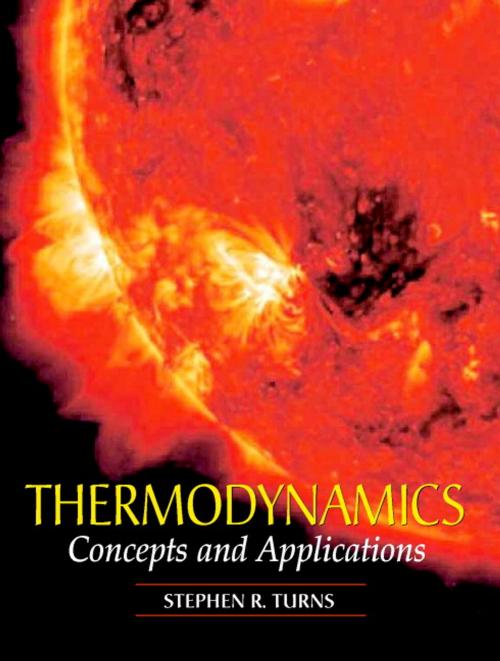Thermodynamics
Concepts and Applications
Nonfiction, Science & Nature, Science, Physics, Thermodynamics, Technology, Engineering, Mechanical| Author: | Stephen R. Turns | ISBN: | 9781316153550 |
| Publisher: | Cambridge University Press | Publication: | March 6, 2006 |
| Imprint: | Cambridge University Press | Language: | English |
| Author: | Stephen R. Turns |
| ISBN: | 9781316153550 |
| Publisher: | Cambridge University Press |
| Publication: | March 6, 2006 |
| Imprint: | Cambridge University Press |
| Language: | English |
The focus of Thermodynamics: Concepts and Applications is on traditional thermodynamics topics, but structurally the book introduces the thermal-fluid sciences. Chapter 2 includes essentially all material related to thermodynamic properties clearly showing the hierarchy of thermodynamic state relationships. Element conservation is considered in Chapter 3 as a way of expressing conservation of mass. Constant-pressure and volume combustion are considered in Chapter 5 - Energy Conservation. Chemical and phase equilibria are treated as a consequence of the 2nd law in Chapter 6. 2nd law topics are introduced hierarchically in one chapter, important structure for a beginner. The book is designed for the instructor to select topics and combine them with material from other chapters seamlessly. Pedagogical devices include: learning objectives, chapter overviews and summaries, historical perspectives, and numerous examples, questions and problems and lavish illustrations. Students are encouraged to use the National Institute of Science and Technology (NIST) online properties database.
The focus of Thermodynamics: Concepts and Applications is on traditional thermodynamics topics, but structurally the book introduces the thermal-fluid sciences. Chapter 2 includes essentially all material related to thermodynamic properties clearly showing the hierarchy of thermodynamic state relationships. Element conservation is considered in Chapter 3 as a way of expressing conservation of mass. Constant-pressure and volume combustion are considered in Chapter 5 - Energy Conservation. Chemical and phase equilibria are treated as a consequence of the 2nd law in Chapter 6. 2nd law topics are introduced hierarchically in one chapter, important structure for a beginner. The book is designed for the instructor to select topics and combine them with material from other chapters seamlessly. Pedagogical devices include: learning objectives, chapter overviews and summaries, historical perspectives, and numerous examples, questions and problems and lavish illustrations. Students are encouraged to use the National Institute of Science and Technology (NIST) online properties database.















